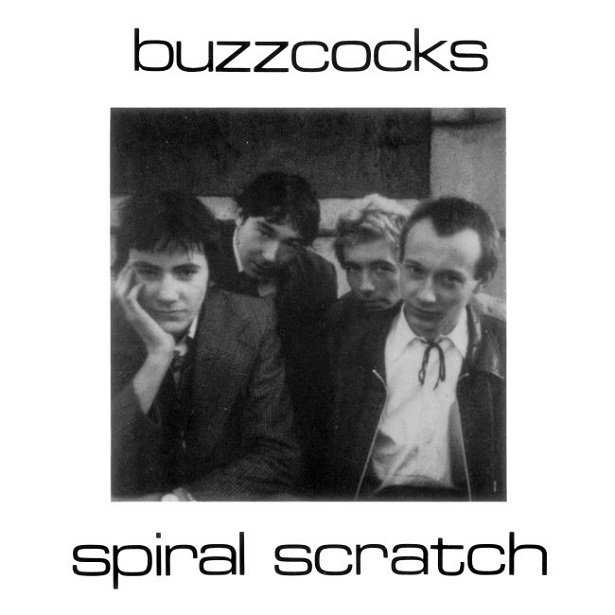The Sex Pistols played other gigs outside of London in that blazing summer of 1976: visits to Scarborough’s Penthouse, Middlesbrough’s Town Hall and Reading University are far less chronicled, however, than the night they played to 40 astounded voyeurs at Manchester’s Lesser Free Trade Hall, a gig which it’s not beyond the realms of hyperbole to say changed music in the Western Hemisphere forever.
At that stage punk was just as much as conceptual art as chaos, the Pistols idiot savants, provocateurs rather than hooligans despite lead singer John Lydon‘s role as a sneering tyrant and a general feeling that the joke was on anyone who couldn’t find the punchline. Amongst the attendees – a list which has now grown to several thousand as time has gone on – were Howard Devoto and Pete Shelley, guitarist and singer respectively with the Buzzcocks.
Their interest, in fact, was greater than almost anyone else amongst the largely bemused punters, as the maverick Londoners were in Manchester at their request. Whilst their performance was a cathartic moment for many of the crowd, the Buzzcocks equally had been a band themselves for several months, Devoto and Shelley bonding over a less than punk love of protean electronic music.
In the adrenalin fuelled months which followed, Devoto found himself increasingly distant from what he perceived to be a cheapening of the movement’s aesthetic, rejecting what he saw as a retreat from its clandestine, Dada-ist societal parody to a simpler rendering as a dystopian Youthquake. Such was his contempt for the process that he left Buzzcocks on the eve of Spiral Scratch‘s release, telling an aghast music press that he was, “tired of noise and short of breath”.
The four track EP was at least a brief revolution: recorded with Martin Hannett, the pressing up of the first 1,000 copies was self funded and it was released on January 27th 1977 on their own New Hormones label, a template for owning the means of production that enabled many of the outfits in their wake to subvert the Byzantine establishment of the time.
Forty years later and stripped of that context – especially as various line-ups have continued to trade under the Buzzcocks name almost ever since – the menace and disaffection which petrified our grandparents in the face of records like this has long been snuffed out. To his credit, Devoto manages to make the stentorian ramalama sound more interesting than perhaps it should: opener Breakdown‘s straight arm guitar chops are what we recognise now as standard, but his words were more poetry then mere polemic: “I can stand austerity but it gets a little much/When there’s all these livid things/That you never get to touch”.
In a way it’s easy to see why songs like Friends Of Mine could’ve swung his mood; an endless stream of non-sequiturs, “Claudette’s pretty quick off the mark/Like a Polaris missile in heat”, that winds itself ever tighter into frantic circles, to Devoto the constriction must’ve been like a straitjacket. The highlight though is both an archetype and a post-script: Boredom is/was a state of mind which begat the movement in the first place, whilst the singer’s evident frustration and nasal contempt were a sign of the discord on the near horizon.
The accompanying ‘Times Up’ session – both will be included in a re-issue entitled Buzzcocks Mk1 to be released in March – was recorded for the princely sum of £45 and originally traded as a bootleg, offering a snapshot of their early live set. It’s hard not to skip straight to the band’s Puckian ode to self pleasure Orgasm Addict, but the overwhelming impression is of a tightness which runs counter to ’77’s received wisdom that instrumental proficiency and latent song structures were for hippies and Teds.
As Spiral Scratch’s accompanying blurb suggests, it is nothing if not a landmark release, one which shifted the balance of power from London to the North, a see-saw which arguably the capital and its truculent counterweight have been on ever since.
Crucially though, it also forms an effective swansong for Howard Devoto’s role in a revolution which he quickly outgrew, a man for whom neither the gutter nor the stars were ready homes for his talent or ambitions.




